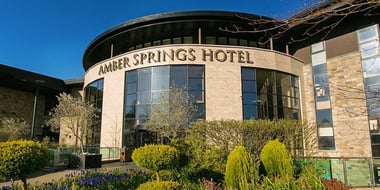This week’s reads are about the continuing loyalty buzz, what “experience” means in a hotel, and areas where hotels have room to improve their online performance: rate management and the language they use.
On loyalty programs, take a look at the articles below to see takes on the idea that loyalty programs should be, first and foremost, a problem-solver. Secondly, US hotels are banking hard on loyalty programs – and it’s still too soon to say if the long term results will pay off. Pick out your favorite article below, and get started:
Loyalty Programs Should Solve Problems to be Valuable
Loyalty programs can be invaluable tools for brands. Well-executed programs can facilitate data collection, personalize on-site experiences, and drive consumer engagement. However, operating a loyalty program requires considerable investment in a saturated market. Therefore, companies must consider a number of factors to determine whether a loyalty program is worth the investment.
Most importantly, brands must consider a loyalty program’s value proposition—what issue will a company’s loyalty program address for both the consumer and the brand?
U.S. Hotels Bank on Loyalty Programs in Push for Direct Booking
Hotel loyalty programs have helped U.S. chains such as Hyatt, Hilton and Marriott score more bookings on their own websites, luring customers from online travel agents that had seen commissions balloon to an estimated $3.5 billion a year.
Grabbing a bigger piece of the reservations pie has become a priority for chains trying to limit the flow of commission dollars to companies like Expedia Inc and Priceline Group Inc.
“It’s costly for hotel companies,” said Telsey Advisory Group analyst David Katz. “Necessary, but costly.”
Everyone in Hotels Talks About Experience, but What Does It Mean?
Richard Millard, chairman and chief executive of U.S. hotel owner Trust Hospitality, is not afraid to be provocative.
“We’re told all the time that experience is the holy grail for hospitality,” he said. “But what does that even mean?”
It was a question his fellow speakers at Bisnow’s Big Hotel Reception in London answered in their own unique ways, including design, staff, on-site gyms vs. local yoga classes vs. cheeseburgers, understanding your local city and how to turn an underground bank vault into one of London’s coolest hotel concepts.
Don’t Say “Book Direct”
Industry jargon gets between you and your guests. It can reduce the number of bookings you get, both on your own website and elsewhere.
For example, the phrase ‘book direct’, which is so widespread within the industry that it’s become the name of its own movement, is very unfamiliar to the average person looking to book a hotel.
However, direct bookings are some of the most profitable ones around for hotels. So how should you get your message across?
Hotels Must Manage Rates on OTA’s
Where’s the lowest hotel rate? Online shoppers may have to do a lot of research to find it, a Piper Jaffray study indicates.
And when they do find it, OTAs and travel search sites will have the lowest rate more often than hotel supplier sites.
Piper Jaffray surveyed 1,000 U.S. customers who reserved rooms at 86 chain hotels in the world’s largest 25 cities. It found that OTAs and travel search sites had the lowest price 21% of the time, while hotel supplier websites had it 13% of the time. In about two-thirds of the cases, room pricing was the same across distribution channels.



